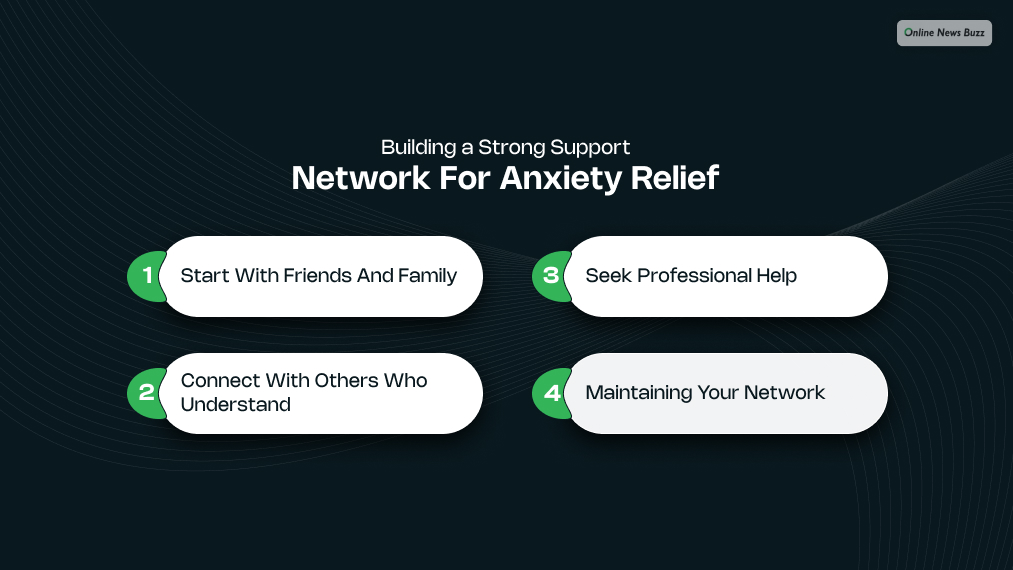
In this difficult year, many of us are struggling with unprecedented amounts of anxiety.
The triggers seem to be endless:
- Am I still going to have my job next month?
- How do I find time to help my kids with their remote learning?
- Am I going to get sick? Is a loved one of mine going to get sick?
- Am I going to lose friendships after not seeing them in person for a year?
All of us have a lot on our plates. While some of us may have already had self-care routines in place (yoga, mediation, journaling), many of us are flailing — unsure how to keep ourselves going.
If you’ve noticed a loved one is struggling, read on to find ways you can help them (while also helping yourself.)
What Is Anxiety?
A good definition of anxiety is that it’s the inability to shake off a negative cognition. Many people struggle with repetitive thoughts that they can’t get rid of or release.
What Are The Signs Of Anxiety?

Having shortness of breath is often one of the tell-tale signs of anxiety. Someone could also have a shaking leg, flickering eyes, fast-talking, or sweating. Others still go into a freeze reaction, and can’t do much at all.
When Should You Help Someone With Anxiety?
Most anxiety requires attention and care — not trying to “fix” the anxiety.
And if we’re honest, most of us could use some more attention and care. So if you see someone exhibiting one of the above traits, offer some caring reassurance.
What Are Ways You Can Help Someone With Anxiety?

Remember to try not to fix, or stop, their anxiety. You can be there to help the person actually acknowledge their anxiety. Because at the end of the day, anxiety needs to be seen and felt like an experience before it can truly begin to dissipate.
A specific way to help is to offer to get some movement together. Maybe go for a walk around the block or walk down to a coffee shop. Movement brings yourself back to the here and now, instead of imagining the anxious scenario over and over.
Another option is to ask them to sit quietly with you and think of a peaceful environment in their mind’s eye. Think of a real place they’ve been to, where they felt totally calm. This could be a beach, a forest, a family home — anywhere. Even if you only sit for a few minutes, imagining that place should help bring your friend to a calmer place.
*If you notice your loved one is experiencing severe anxiety, or their anxiety is holding them back in their daily lives, then it may be time to seek outside help, such as a therapist or holistic treatment center.
Building a Strong Support Network for Anxiety Relief

One of the most effective ways to manage anxiety is by developing a solid support system.
It’s easy to feel like you’re fighting anxiety alone, but when you surround yourself with the right people, the load gets lighter.
Let’s explore how to build and maintain a network that can help you and others stay grounded.
Start with Friends and Family
Who do you trust the most? Start with them.
Friends and family are often the easiest and most accessible sources of support. Share your experiences with anxiety.
You don’t have to explain everything in detail but letting them know that you’re struggling can open the door to understanding and support. They can be there to listen, offer advice, or even just sit with you during tough moments.
The key is to communicate your needs. Don’t be afraid to ask for help when you need it, whether it’s a chat over coffee, a phone call, or simply their presence when you feel overwhelmed.
Connect with Others Who Understand
Sometimes, friends and family might not fully understand your anxiety. That’s where joining a community of people who get it comes in.
Whether it’s an online support group or a local mental health meetup, connecting with people who face similar challenges can make a huge difference. They know what you’re going through because they’ve been there.
Try looking for forums, social media groups, or mental health apps where you can share your thoughts without judgment. Often, just knowing you’re not alone in your experience can be incredibly reassuring.
Seek Professional Help
If your anxiety feels overwhelming, don’t hesitate to seek help from a mental health professional.
Therapists, counselors, or support groups led by professionals can give you the tools you need to manage your anxiety more effectively. Regular therapy sessions can provide a safe space to work through your emotions and challenges.
Plus, therapists can introduce you to different coping mechanisms, like Cognitive Behavioral Therapy (CBT) or mindfulness techniques, tailored specifically to your needs.
Maintaining Your Network
Building a support system is one thing. Maintaining it is another. Keep communication open with your support network and remember it’s okay to lean on them when you need to.
But also make sure to offer your support in return. A healthy support network works both ways, creating stronger, more meaningful connections.
Your support system can become a lifeline in managing anxiety, helping you feel more grounded, connected, and capable of facing challenges head-on.
What About Pandemic-Related Anxiety?
A new class of anxiety has emerged in the last year — pandemic anxiety.
This newfound anxiety could show up in many different ways. Maybe they’re anxious about how to interact with others after isolating for so long. Maybe they’re worried about going to the doctor to get their heart checked out because they don’t want to risk getting infected at the office. Or maybe they’re nervous about everything they’re missing from not being able to go out.
People can have different combinations of these depending on the day. One of the best ways to help them through this anxiety is sticking to facts to reassure them.
“I don’t know how to talk with anyone anymore — I’m so awkward.”
“Everyone is! Everybody is in the same situation of not talking to many people for months. It makes sense it’s going to take some getting used to again.”
“I don’t want to go to the doctor’s office because I don’t want to catch covid-19 from someone there.”
“Everyone will have a mask on, and the doctor’s office is more sterilized than almost any other place you go. And if there is something wrong with your heart, you don’t want to put that off.”
“I’ve lost a whole year of my life!”
“Let’s focus on what you didn’t lose. You still have your health, your family, and your job. You also learned how to bake sourdough and knit! While it’s been a really tough year, let’s be grateful for what we have.”
Reassurance is often the best solution for anxiety. Feeling seen and heard allows your loved one to feel acknowledged. This recognition alone will often help anxiety dissipate, and it will also help the person feel more connected to you — which is what we need more of these days.




























